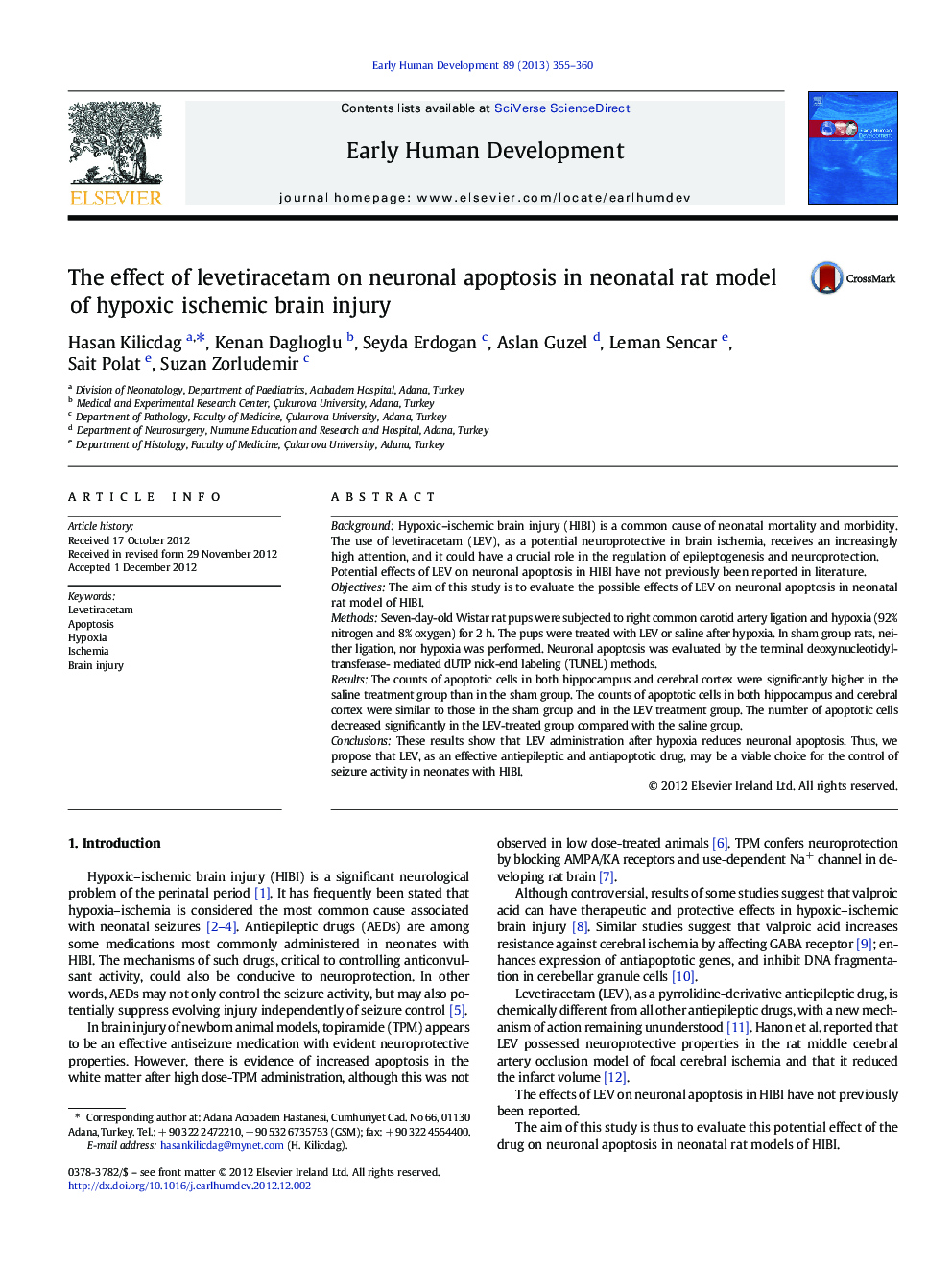| Article ID | Journal | Published Year | Pages | File Type |
|---|---|---|---|---|
| 6172031 | Early Human Development | 2013 | 6 Pages |
BackgroundHypoxic-ischemic brain injury (HIBI) is a common cause of neonatal mortality and morbidity. The use of levetiracetam (LEV), as a potential neuroprotective in brain ischemia, receives an increasingly high attention, and it could have a crucial role in the regulation of epileptogenesis and neuroprotection. Potential effects of LEV on neuronal apoptosis in HIBI have not previously been reported in literature.ObjectivesThe aim of this study is to evaluate the possible effects of LEV on neuronal apoptosis in neonatal rat model of HIBI.MethodsSeven-day-old Wistar rat pups were subjected to right common carotid artery ligation and hypoxia (92% nitrogen and 8% oxygen) for 2Â h. The pups were treated with LEV or saline after hypoxia. In sham group rats, neither ligation, nor hypoxia was performed. Neuronal apoptosis was evaluated by the terminal deoxynucleotidyl-transferase- mediated dUTP nick-end labeling (TUNEL) methods.ResultsThe counts of apoptotic cells in both hippocampus and cerebral cortex were significantly higher in the saline treatment group than in the sham group. The counts of apoptotic cells in both hippocampus and cerebral cortex were similar to those in the sham group and in the LEV treatment group. The number of apoptotic cells decreased significantly in the LEV-treated group compared with the saline group.ConclusionsThese results show that LEV administration after hypoxia reduces neuronal apoptosis. Thus, we propose that LEV, as an effective antiepileptic and antiapoptotic drug, may be a viable choice for the control of seizure activity in neonates with HIBI.
